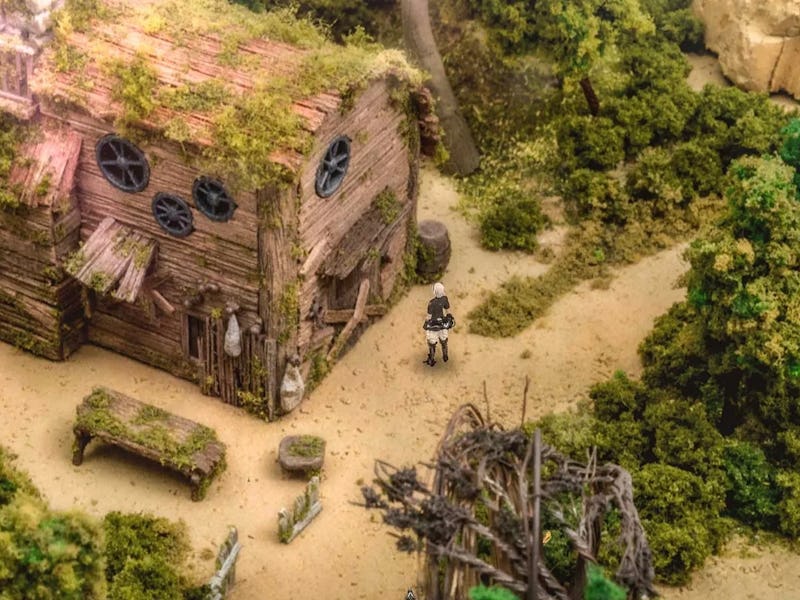Fantasian fixes the worst thing about RPGs with 1 brilliant mechanic
Fantasian is a turn-based RPG that finds a clever way to cut out the grind.

Fantasian is a sight to behold. The new RPG from Final Fantasy creator Hironobu Sakaguchi is out now and it might be Apple Arcade’s new killer app. It’s a throwback JRPG that evokes classics like Chrono Trigger while boasting an entirely unique art style that utilizes real dioramas.
The art is sure to be what catches players’ attention initially, but Fantasian’s secret weapon is its actual gameplay. By using clever systems to cut down the grind, the game fixes a problem that has long plagued RPGs.
Final Fantasy XVI should be taking notes.
Like most classic RPGs, Fantasian is a turn-based game that features random encounters. Walk around an area and a battle will materialize out of nowhere, bringing players into a battle screen filled with monsters. Defeat all the enemies and grab those precious experience points.
In many RPGs, random battles can be a momentum killer. Frequent interruptions can slow the pace of a game to a halt for minimal, incremental gain. It can be especially tiresome when faced against the same sets of creatures ad nauseum. The strategy of turn-based battling goes out the window and auto-pilot starts to set in. It’s enough to make a person want to stop exploring an area and power through it as fast as possible.
A battle against a boss in Fantasian.
Sakaguchi seemed to understand the ennui of the grind. His solution is Fantasian’s Dimengeon system. Early in the game, players get a tool that essentially absorbs random battles. After fighting an enemy for the first time, and subsequent random battles with it are stored in the device. At any time, players can pop the Dimengeon open and fight all of the enemies they’ve passed. Rather than fighting five or six disparate battles, it’s one massive brawl with up to 30 enemies.
To keep that from becoming overwhelming, Dimengeon battles feature unique mechanics. Players can grab power-ups during fights that’ll increase their attack power or steal a turn from an enemy. Combine that with the game’s base combat system that involves lining up shots to hit multiple enemies at once and these brawls become a satisfying test of how well players can spatially reason on the battlefield.
The most obvious benefit is that it cuts down on the number of times players are whisked into battle. Going off the beaten path to hunt for treasure feels less obnoxious when it doesn’t mean trudging through another 20 minutes of fights. That keeps the pace of the game surprisingly brisk. The whole adventure is over in 15 hours, and it’s easy to see how traditional random battles could have stretched it way further.
A forest location in Fantasian.
The system helps alleviate the feeling of slow character progress too. The battles grant a larger chunk of experience points vs the slow lurch of individual battles. It adds a stronger sense of progression to the game that makes each fight feel more worthwhile.
Fantasian is an RPG with all the fat trimmed off. It features the same strengths as genre staples like Final Fantasy, but it doesn’t ask players to suffer through long hours of grinding to do so. Instead, it constantly keeps the player moving so they can get on with the story and see more of its gorgeous world.
This style of traditional RPG has been on the outs in recent years as games like Final Fantasy VII Remake move towards more active action-RPG mechanics. Turn-based gameplay like this is usually reserved for throwbacks like Bravely Default 2. Fantasian shows that there’s still plenty of ways to dust off an old formula and make it even better.
This article was originally published on